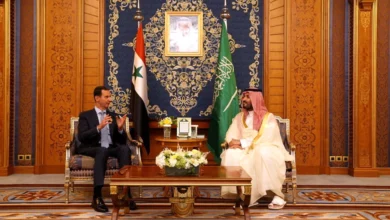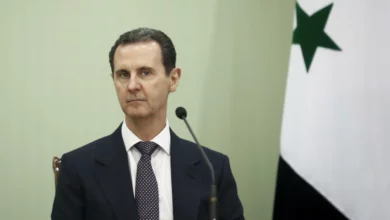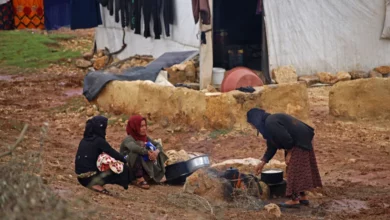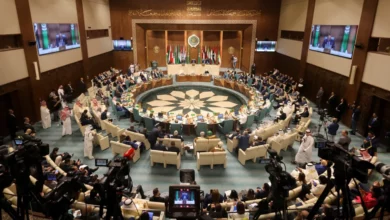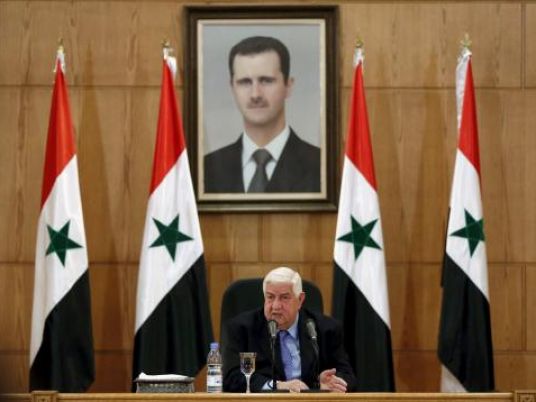
The Syrian government on Saturday said the ouster of President Bashar al-Assad remains a "red line," just two days ahead of renewed talks to put an end to the war.
US Secretary of State John Kerry said that the indirect negotiations between the Syrian government and the opposition were likely to go ahead as planned on Monday in Geneva.
The UN-brokered talks are the latest push by the international community to find a solution to Syria's five-year war, which has left more than 270,000 people dead.
Both the government and the main opposition group, the Riyadh-based High Negotiations Committee, have agreed to attend the talks after the last round collapsed in February.
But the fate of Assad would not be on the negotiating table, Syria's Foreign Minister Walid Muallem told a Damascus news conference.
"We will not talk with anyone who wants to discuss the presidency… Bashar al-Assad is a red line," Muallem said.
The HNC has repeatedly called for Assad's departure at the start of any transitional period.
"If they continue with this approach, there's no reason for them to come to Geneva," Muallem said.
He said the government's delegation would travel to Switzerland on Sunday, but would leave if the opposition did not show up within 24 hours.
'Unity government'
UN peace envoy Staffan de Mistura said the meetings in Geneva would not last more than 10 days.
The negotiations would cover the formation of a new government, a fresh constitution, and UN-monitored presidential and parliamentary elections within 18 months, the envoy said.
But Muallem said that de Mistura had "no right" to discuss future presidential elections or any agenda items.
"Neither he nor anyone else, whoever they may be, has the right to discuss presidential elections," insisted Muallem.
"This right is exclusively for the Syrian people."
Muallem said the negotiations would aim to form a "unity government" which would then appoint a committee to either write a new constitution or amend the current one.
"Then we will have a referendum for the Syrian people to decide on it," he said, adding that a federal division of Syria was not an option.
The opposition HNC has likewise insisted on the territorial unity of Syria, but says talks must create a "transitional governance body with full executive powers."
On Saturday, de Mistura told Swiss newspaper Le Temps that although Syria's Kurds were not invited to talks, they should be given the opportunity to voice their views on a future governance structure and constitution.
Regime backer Russia had called on de Mistura to include Syrian Kurdish representatives in peace talks.
80 percent drop in violence
Violence in Syria has decreased since a landmark ceasefire between the regime and rebels across parts of the country took effect two weeks ago.
Brokered by the United States and Russia, who back opposing sides in the conflict, the truce appears to be largely holding although the warring sides have accused each other of violations.
As he wrapped up a visit Saturday to Saudi Arabia, Kerry said that US and Russian officials would meet later in the day to discuss complaints by the opposition of truce violations.
"Our teams are meeting today with Russia in both Geneva and Amman, where very detailed lay downs will take place regarding these allegations," he said.
Air raids by the Syrian regime killed seven civilians in rebel-held areas of second city Aleppo on Friday, according to the Syrian Observatory for Human Rights.
But Kerry, who met Saudi Arabia's King Salman for talks on Syria, said that "perceived" violations of the ceasefire should not derail the UN-mediated peace talks.
"The level of violence by all accounts has been reduced by 80 to 90 percent, which is very, very significant," he said.
The UN's top humanitarian officials on Friday said the truce had brought "fragile glimmers of hope" to the humanitarian situation in Syria.
"Fewer bombs are falling; humanitarian access has opened up in some places; negotiators from all sides are preparing to come together and talk," the heads of aid agencies said in a joint statement.
But "it is just not enough," they said, as other communities remain cut off from assistance.

